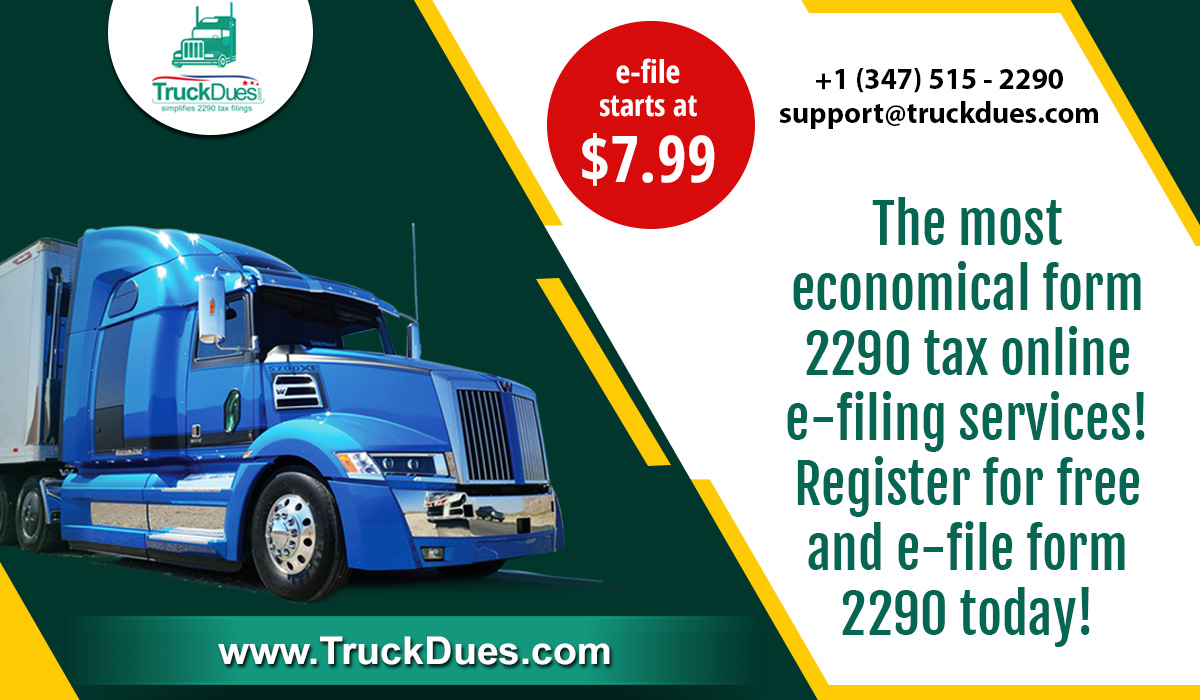Hello, truckers! Apart from the heavy commercial vehicles, logging and agricultural vehicles used for their specific purposes are entitled to form 2290 truck taxes. But taxes are charged specially for these two vehicle categories. Therefore, truckers having logging or agricultural vehicles must understand how these vehicles are taxed under form 2290 and report the taxes accordingly. Let us look into both vehicles separately and the special under which they are taxed in form 2290 HVUT.
Logging Vehicles.
Logging vehicles are used for transporting the products harvested in a forest area or for transporting the forest-harvested products from and to forest locations (public highways connecting two forest locations). These vehicles must be registered as highway heavy motor vehicles for transporting products harvested in forests under the laws of the state or the states in which the vehicles are required to be registered. No special tag or license place is necessary for a logging vehicle to identify as one per IRS regulations.
How are logging vehicles taxed in form 2290?
Logging vehicles are charged lower tax rates than heavy commercial vehicles. Like other commercial vehicles, they are taxed based on the total gross weight and first used month. But there is a separate category/column for logging vehicles with reduced tax rates in form 2290. Therefore, truckers reporting form 2290 for their logging vehicles must check the box under the logging vehicles category and file the truck taxes.
Agricultural Vehicles.
Agriculture vehicles are highway-heavy motor vehicles used for transporting framing goods/products and used mainly for farming purposes. They must be used in any activity directly involved in agricultural production or farming, including soil cultivation, raising, harvesting, land clearing, repairing fences and farm buildings, building terraces and irrigation ditches, cleaning tools and farm machinery, and painting. Other food processing operations like canning, freezing, and packaging of farming products are not considered for farming purposes. The heavy vehicles used for food processing are not regarded as agricultural vehicles.
How are agricultural vehicles taxed in form 2290?
Agriculture vehicles are taxed the same as every heavy highway vehicle based on the total gross weight and first used month. But the mileage limit for agricultural vehicles is 7500 miles on public highways. Your agriculture vehicle becomes eligible for form 2290 truck taxes if it crosses the mileage limit of 7500 miles on public highways. You must also report form 2290 for your agriculture vehicle as a tax-suspended vehicle if it is estimated to run less than 7500 miles. Tax-suspended vehicles don’t need to pay the form 2290 truck tax dues.
E-file form 2290 at TruckDues.com!
TruckDues.com offers the most convenient form 2290 online e-filing services, where you can e-file form 2290 truck taxes for all types of trucks like commercial vehicles, logging vehicles, and agriculture vehicles. You need to make sure that you check the appropriate boxes for logging and agriculture vehicles and prepare your tax reports accordingly on our platform. Once you prepare your tax reports and transmit them to the IRS, you will get the instant schedule 1 copy straight to your registered email address. If you have any queries while e-filing form 2290 for your logging or agricultural vehicle, contact our customer support team at + 347 – 515 – 2290. They are available from 8 AM to 6 PM on all working days. You can also write to support@truckdues.com about your queries, and we will answer you promptly.

